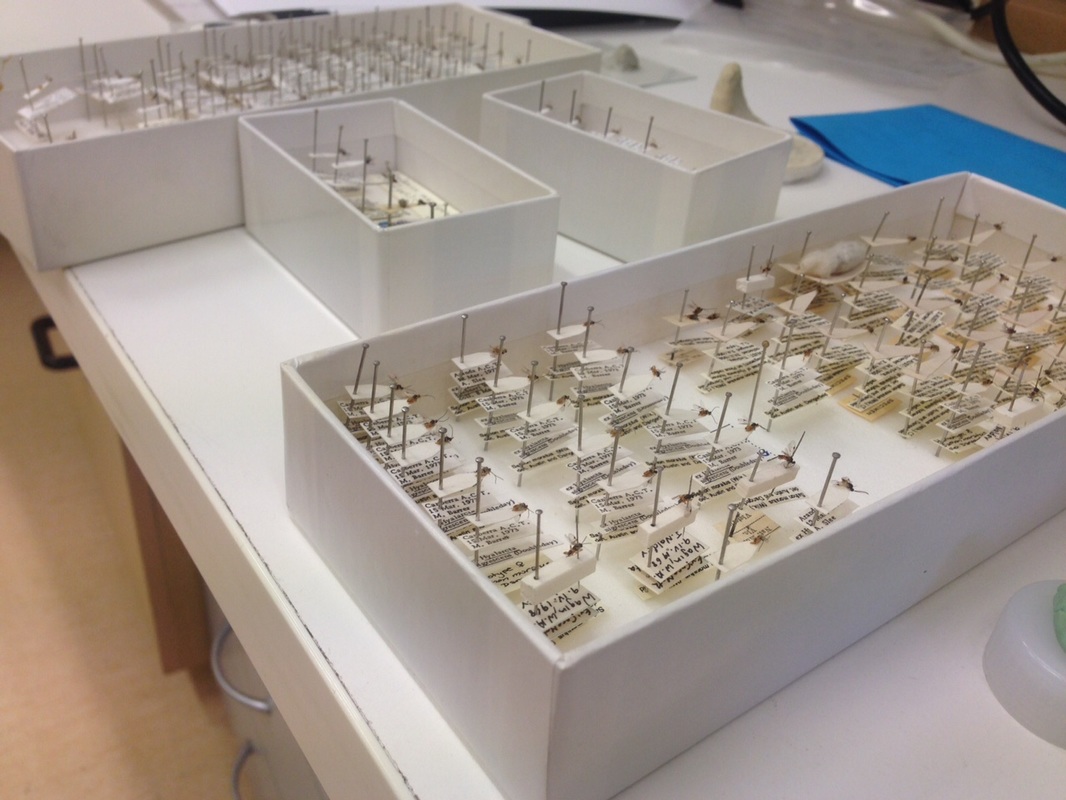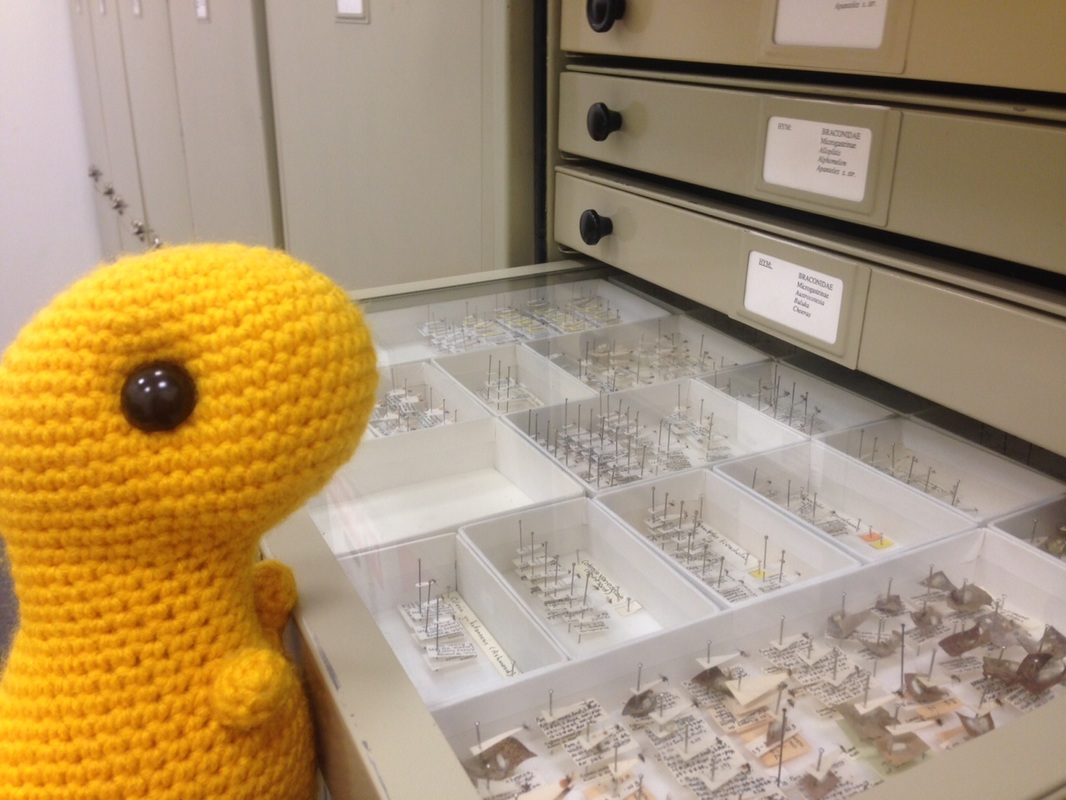Checking out more wasps today! We haven't collected any wasps ourselves yet, but there are plenty in the collection of the University that we're using to learn how to identify different species.
Insect specimens can last a really long time when they are looked after. The oldest wasp specimens we looked at today were only from the 1980s, but the oldest pinned specimen in the world is a butterfly (Pontia daplidice) in the Oxford University Museum of Natural History from 1702! That means it is 313 years old!
To allow insect specimens to last this long, they have to be cared for and kept in a special way. First of all, our wasps are sorted according to their species in these little white boxes. This makes it easy to find what you are looking for!
Insect specimens can last a really long time when they are looked after. The oldest wasp specimens we looked at today were only from the 1980s, but the oldest pinned specimen in the world is a butterfly (Pontia daplidice) in the Oxford University Museum of Natural History from 1702! That means it is 313 years old!
To allow insect specimens to last this long, they have to be cared for and kept in a special way. First of all, our wasps are sorted according to their species in these little white boxes. This makes it easy to find what you are looking for!
These little boxes are then placed in a collection drawer. The collection drawers protect the specimens from having anything dropped on them. The drawers also contain naphthalene, a chemical which protects the specimens from living insects that would want to eat them! If you've ever used moth balls to protect your linen from being nibbled on by moths, they were traditionally made of the same chemical.
The labelled drawers then go into a labelled cabinet, which keeps the drawers organised and out of direct sunlight, which can fade or damage specimens. The cabinets are kept in a cool room to help preserve the specimens.
For a great summary on the reasons entomologists need to kill some insects and have dead specimens for study, check out this post on the Ask and Entomologist blog.
Maybe the wasps that Mustard and I collect will last for 313 years too!
For a great summary on the reasons entomologists need to kill some insects and have dead specimens for study, check out this post on the Ask and Entomologist blog.
Maybe the wasps that Mustard and I collect will last for 313 years too!


 RSS Feed
RSS Feed
